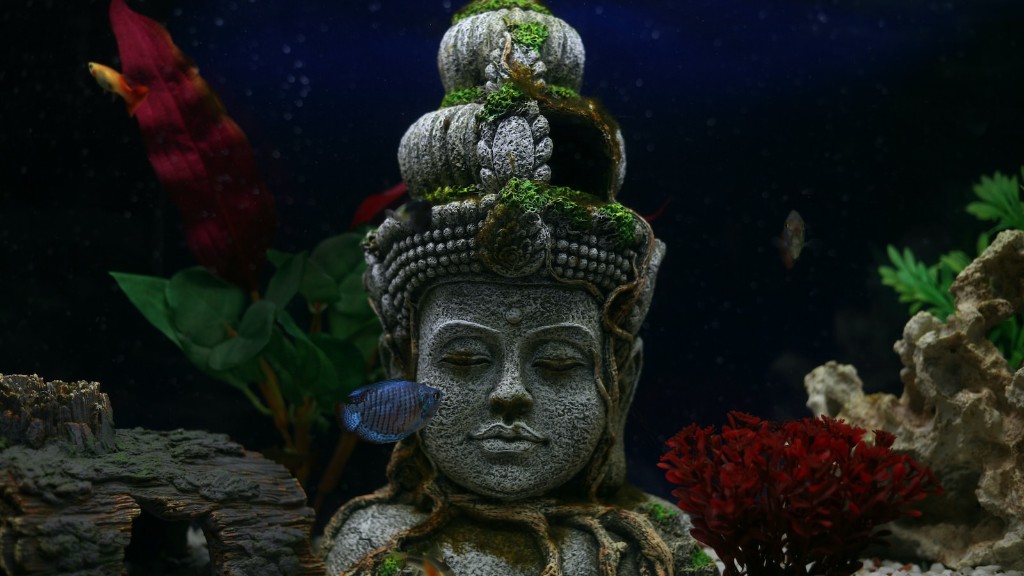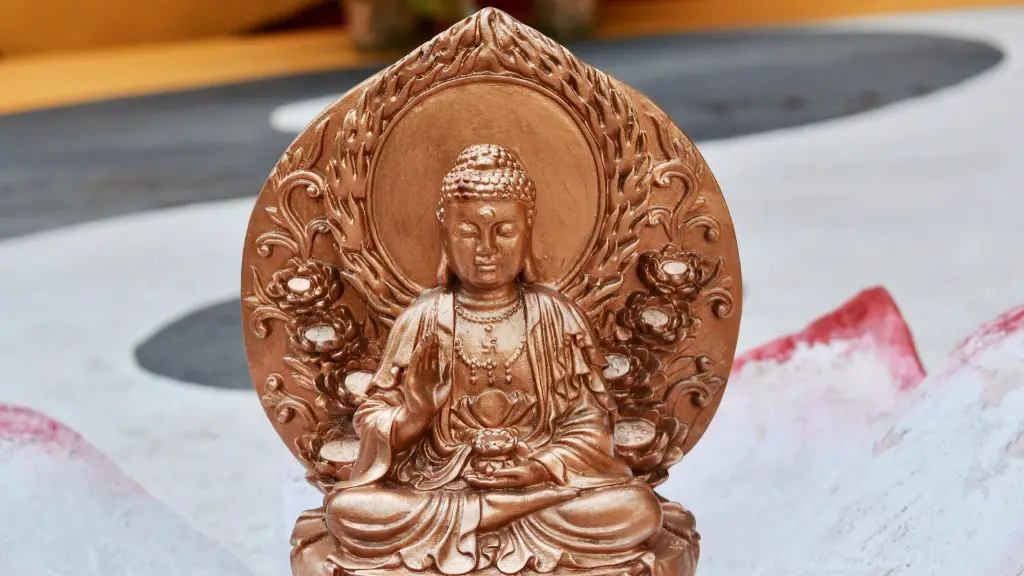Buddhism is a practice that began in India, while Christianity has its origins in Palestine. For Buddhists, the path to enlightenment is through the Four Noble Truths and the Eightfold Path. Christians, on the other hand, believe in the teachings of Jesus Christ and the Bible. There are also significant differences in the way the two religions view the afterlife.
There are several ways in which Buddhism differs from Christianity. One key difference is that while Christianity teaches that there is one way to find salvation and to be saved from God’s wrath, Buddhism largely takes a more tolerant stance towards different belief systems. Additionally, Christianity teaches that Jesus Christ is the only way to gain eternal salvation, while Buddhism instead teaches that one can achieve Nirvana, or spiritual enlightenment, through their own individual efforts. Finally, Christians believe in the concept of original sin, while Buddhists do not.
Can a Buddhist believe in god?
Buddhists do not believe in any kind of deity or god, although there are supernatural figures who can help or hinder people on the path towards enlightenment. The Buddha himself was a human being who attained enlightenment through his own efforts and teachings. Buddhists believe that it is possible for anyone to achieve the same state of enlightenment, although it may take many lifetimes of practice.
The central iconic imagery of the two traditions underscore the difference in their belief structure. The peaceful death of Gautama Buddha at an old age is contrasted with the harsh image of the crucifixion of Jesus as a willing sacrifice for the atonement for the sins of humanity.
What beliefs do Christianity and Buddhism have in common
It is important to behave with decency and respect in all aspects of life, regardless of religion. All spiritual practices should be founded on moral principles in order to be successful.
Buddhism is a religion that does not acknowledge a supreme god or deity. Followers of Buddhism instead focus on achieving enlightenment- a state of inner peace and wisdom. When followers reach this spiritual echelon, they are said to have experienced nirvana. The religion’s founder, Buddha, is considered an extraordinary being, but not a god.
What do Buddhists think of Jesus?
There are some high level Buddhists who have drawn analogies between Jesus and Buddhism. The Dalai Lama, for example, has stated that “Jesus Christ also lived previous lives”, and added that “So, you see, he reached a high state, either as a Bodhisattva, or an enlightened person, through Buddhist practice or something like that”. Thich
In Buddhism, there is no concept of punishment or reward and there is no divine being who decides who goes to hell or heaven. There is merely the illusory results of our thought, words and deeds, which we call karma.
What are the sins in Buddhism?
These are five of the worst sins a person can commit in Buddhism. They are seen as so heinous that they guaranteed to result in rebirth in the lowest level of hell.
There is a lot of evidence to support the view that Buddhism is compatible with science and reason. For example, the Buddha himself was a highly rational thinker who relied on empirical evidence to test his theories. And in the centuries since the Buddha’s time, many Buddhist thinkers have continued to uphold the importance of reason and science.
What’s more, Buddhism has a long history of peaceful coexistence with other religions and philosophies, including those that are based on science and reason. So it’s not surprising that many people today see Buddhism as a kind of science, or at least as a religion that is compatible with science.
Can Buddhism and Christianity coexist
There is a big difference between the Christian and Buddhist beliefs. Christians preach of one God, creation and salvation, while Buddhists believe in reincarnation, enlightenment and nirvana. These beliefs are not compatible at all and there is no middle ground between them.
There is historical evidence that Jesus was aware of Buddhism, as both he and the Buddhist religion were present in Judea during the same time period. While it is impossible to know for certain if Jesus had any personal interaction with Buddhists or knew about their beliefs, this evidence does suggest that he was at least aware of their existence. Whether or not he had any influence on the development of Buddhism is a matter of speculation.
What are the 3 main beliefs of Buddhism?
Buddhism is a religion that is based on the teachings of Siddhartha Gautama. The main principles of this belief system are karma, rebirth, and impermanence.
Karma is the belief that our actions have consequences, and that these consequences will determine our future lives. Rebirth is the belief that after we die, we are reborn into another life. Impermanence is the belief that everything is constantly changing, and that nothing lasts forever.
These beliefs can be applied to our everyday lives in order to help us live more meaningful and purposeful lives. Buddhism teaches us to be mindful of our actions and to act with compassion and wisdom. It also teaches us to let go of attachments and to accept that change is a natural part of life.
Parallels have been drawn between the teachings of Jesus and Buddha, but these comparisons emerged after missionary contacts in the 19th century. There is no historically reliable evidence of contacts between Buddhism and Jesus.
What is forbidden as a Buddhist
The precepts are a set of basic guidelines for ethical behavior that all followers of Buddhism should respect. They include commitments to abstain from killing living beings, stealing, sexual misconduct, lying and intoxication. By adhering to these precepts, Buddhists can help create a more peaceful and harmonious world.
Buddhism has always been opposed to the consumption of alcohol, as it is seen as a hindrance to enlightenment. Early Buddhists saw alcohol as a toxin that clouded the mind and led to suffering. In Tibet, Buddhism is the dominant religion, and the consumption of alcohol is strictly forbidden. In Thailand, where Buddhism is also the dominant religion, the consumption of alcohol is not as strictly prohibited, but is still discouraged.
Is A Buddhist an atheist?
Buddhism is not a theistic religion, and atheism is therefore perfectly compatible with Buddhist beliefs. The Buddha himself rejected the idea of a creator god, and Buddhist philosophers have even argued that belief in an eternal god is nothing but a distraction for humans seeking enlightenment.
Many Buddhists do celebrate the holiday season, despite what some may believe. In fact, among Asian American Buddhists, three-quarters celebrate Christmas. Some Buddhists also observe Bodhi Day on Dec 8, which marks the day when the Buddha reached enlightenment. So while the holiday season may look different for Buddhists than for others, it can still be a time of joy and celebration.
Final Words
Buddhism and Christianity are different in a number of ways. For one, Buddhism generally does not believe in a personal God, while Christianity does. Christianity also teaches that Jesus is the only way to achieve salvation, while Buddhism teaches that there are many paths to salvation. Finally, Christianity teaches that there is a heaven and a hell, while Buddhism generally does not believe in either.
Although Buddhism and Christianity are both religions that originated in Asia, they are fundamentally different in terms of their beliefs and practices. Christianity is centered around the teachings of Jesus Christ, while Buddhism focuses on the teachings of Siddhartha Gautama, also known as the Buddha. Christians believe in the concept of original sin, while Buddhists do not. Christians also believe in the concept of afterlife and reincarnation, while Buddhists believe in rebirth. In terms of practices, Christians typically emphasize prayer and worship, while Buddhists typically emphasize meditation and mindfulness.

